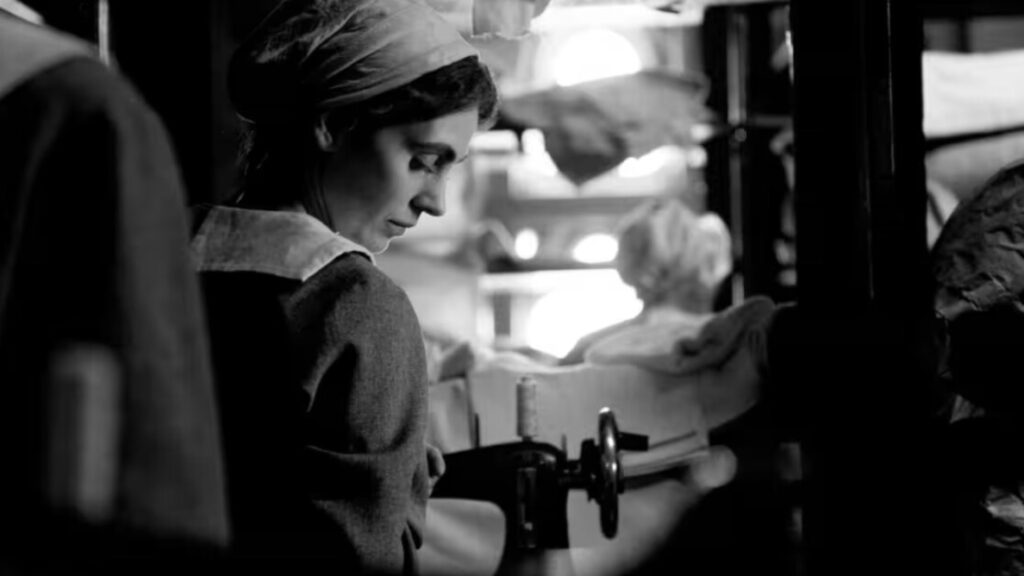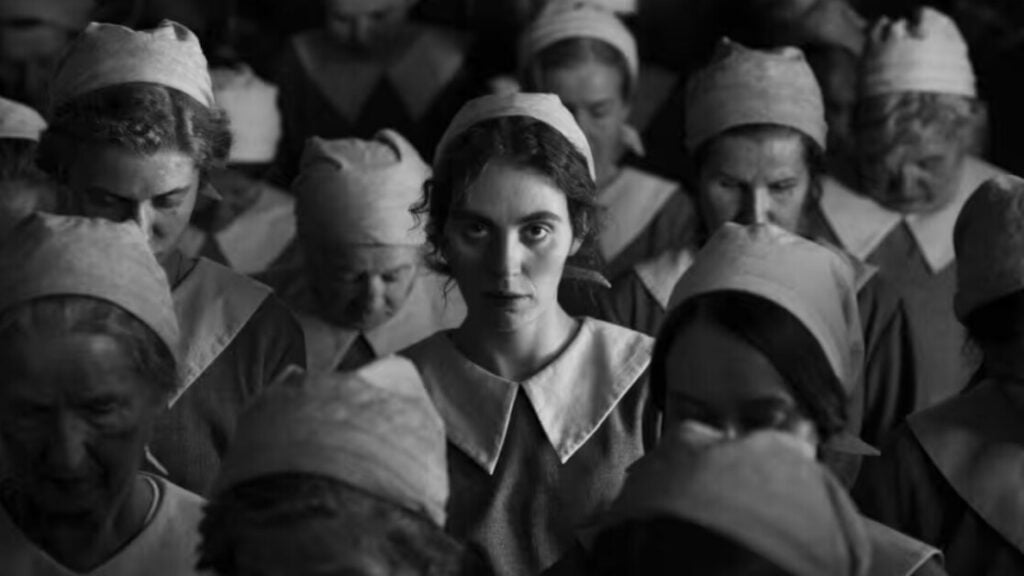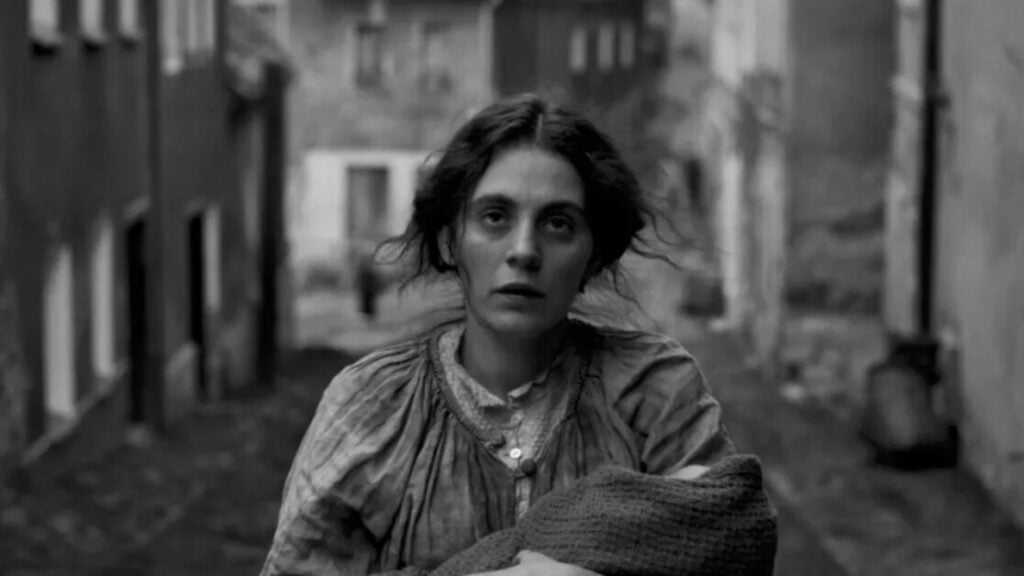Director Magnus von Horn is no stranger when it comes to creating an engrossing female character study. In his previous work, Sweat, he showed us the extremities young fitness influencers go through to meet social beauty standards. The exploration of female characters is also an essential aspect of his latest feature, but both movies couldn’t be further apart from each other. While Sweat was all about glossiness and neon bright colours, The Girl with the Needle (original title: Pigen med nålen) is intensely dark and dim as it’s a gripping retelling of one of Denmark’s most notorious baby-killer cases.
Instead of following Dagmar (Trine Dyrholm), the serial killer convicted of killing multiple babies between 1913 and 1920, von Horn’s camera focuses on Karoline (Vic Carmen Sonne), one of Dagmar’s future customers. Just like many women, Karoline faces incredibly dangerous and precarious situations. She doesn’t have a lot of money, and with her husband feared dead, she won’t be able to climb any social ladders as she can barely look after herself. With immense flair and in black and white, von Horn shows us the disposable nature of women as well as how gloomy the post-war world is. Despite being a strong-willed seamstress who wants to make a future of her own (no matter how difficult the circumstances), Karoline feels the pressure to find love and start a family.
That desperation, emotion, intelligence, and naivety come through effectively with great nuance thanks to Sonne’s (Holiday, Godland) delicate acting. We see how the uneducated woman, who, despite doing everything she can, has no great future awaiting her. Sonne’s performance is very similar to the ones in a silent film, as even without many words, her drawn visage ensures that we know exactly what her character’s going through.

The sadness on her face could soon make place for a smile as things might look much brighter, though when Karoline finds love in the arms of the suave factory boss Jørgen (Joachim Fjelstrup). Sadly, her happiness doesn’t last long as she is about to find out exactly how worthless and expandable women from the lower class are. Despite being pregnant with Jørgen’s child, Karoline is rejected by his aristocratic family. Determined that she doesn’t want his child anymore, she has two options. She either elicits a miscarriage with an immense needle or gives birth and hands the child over to Dagmar, who runs an underground adoption agency. When Karoline is forcing herself to undergo option one, she meets Dagmar.
Dagmar convinces her to give up the baby as she can soon find a loving family who will take care of the unwanted child. While the decision ensures that Karoline has to depart from her baby, it also brings both women closer together. Karoline even starts working for Dagmar as a wet nurse. However, the more time the women spend together and the more babies they provide with a new family, the more it looks like Dagmar isn’t as goodhearted and genuine as she seems.
Her sinister, dim, and murderous side doesn’t only become apparent when looking at the speed at which people ‘adopt’ the unwanted infants, but also by looking at Dagmar’s unusual practices in her private life. She forces Karoline to breastfeed her daughter Erena (Avo Knox Martin), a former baby she couldn’t give up for adoption. We will never know why Dagmar is the person she is. The movie doesn’t pay attention in detail to her past, upbringing and experience in living in a poor and abusive society, but that doesn’t make what she did less impactful.

On the contrary, the dramatic and dreading events stand out even more because of the lack of all-consuming and overpowering cinematography. Cinematographer Michal Dymek’s work (Cold War, Sweat) is like Sonne’s performance; it is subtle, powerful, and doesn’t show off. His cinematography makes this movie feel dreamlike during certain moments, but the events are everything but a dream. They took place in real life as this feature is “inspired by true events”. While the black-white might decrease the aspect of blood or the murders, the colour combination adds much bleakness, grimness, and intrigue to this feature. The same coldness is visible in Dagmar’s eyes as the startling and charismatic Dyrholm (Queen of Hearts, Love Is All You Need) delivers much of her vulnerability, trauma, and fear.
While von Horn’s previous works always have a modern exploration of society, this movie is more timeless and terrifying. With rich but also subtle storytelling and two multifarious, engrossing lead performances, he offers us a harrowing and impressive look at the place of the women in a forbidding, judgemental and dark world and at horrific dramatic real-life events.
The Girl with the Needle held its World Premiere as a part of the In Competition section of the 2024 Cannes Film Festival.
Director: Magnus von Horn
Screenwriters: Magnus von Horn, Line Langebek
Rated: NR
Runtime: 115m
Vic Carmen Sonne and Trine Dyrholm shine in The Girl with the Needle, a harrowing exploration of one of Denmark’s darkest murder cases.
-
GVN Rating 8
-
User Ratings (0 Votes)
0







